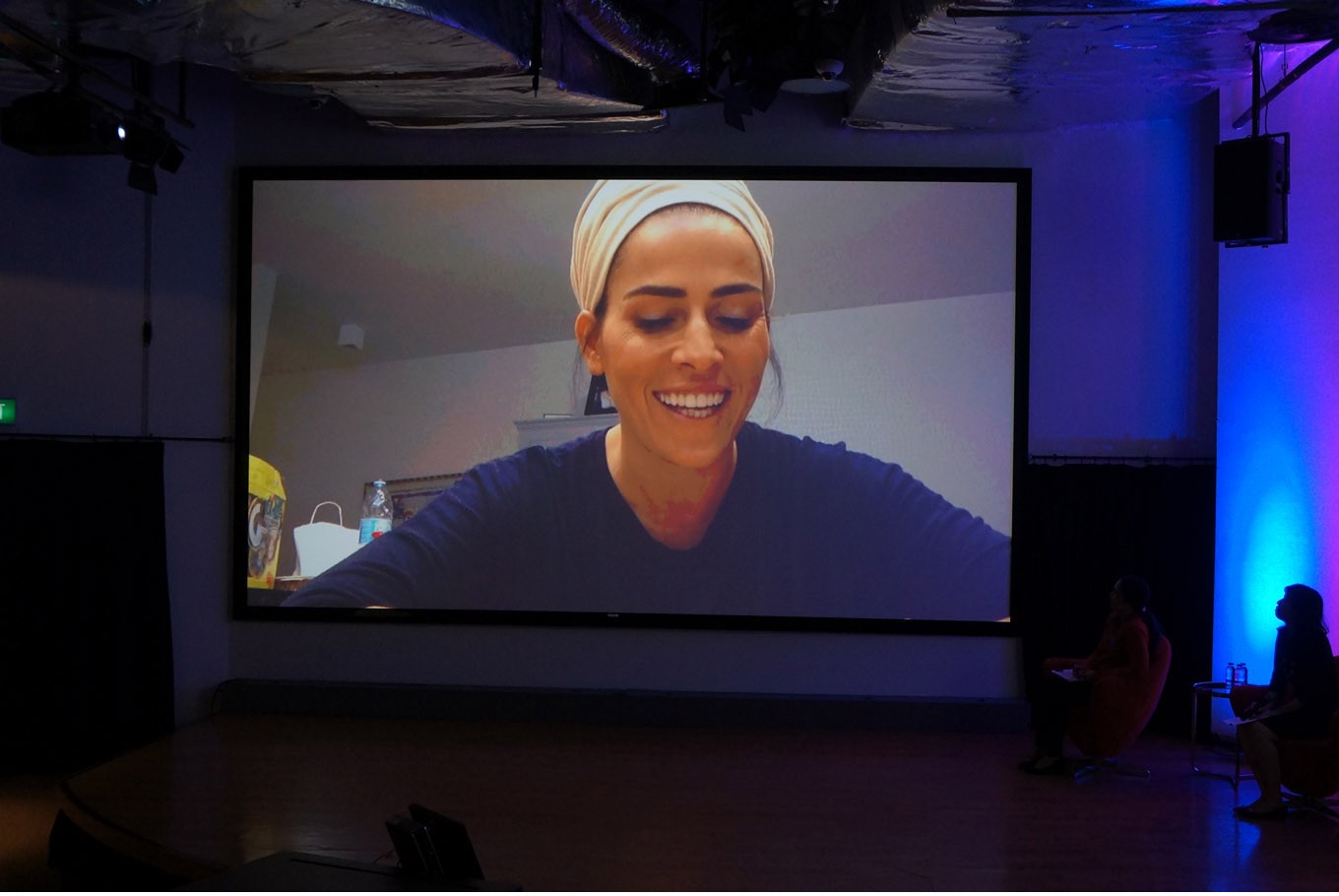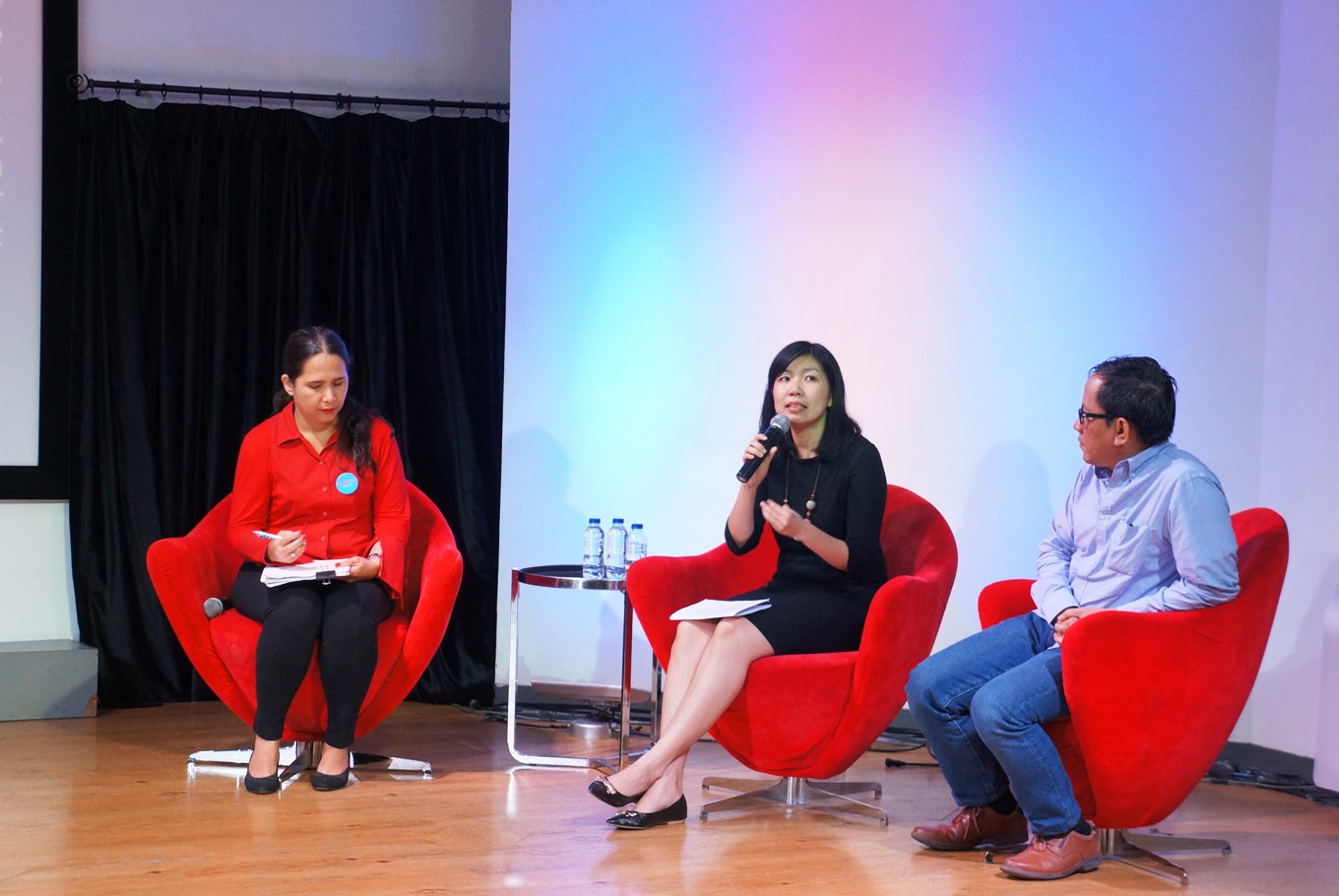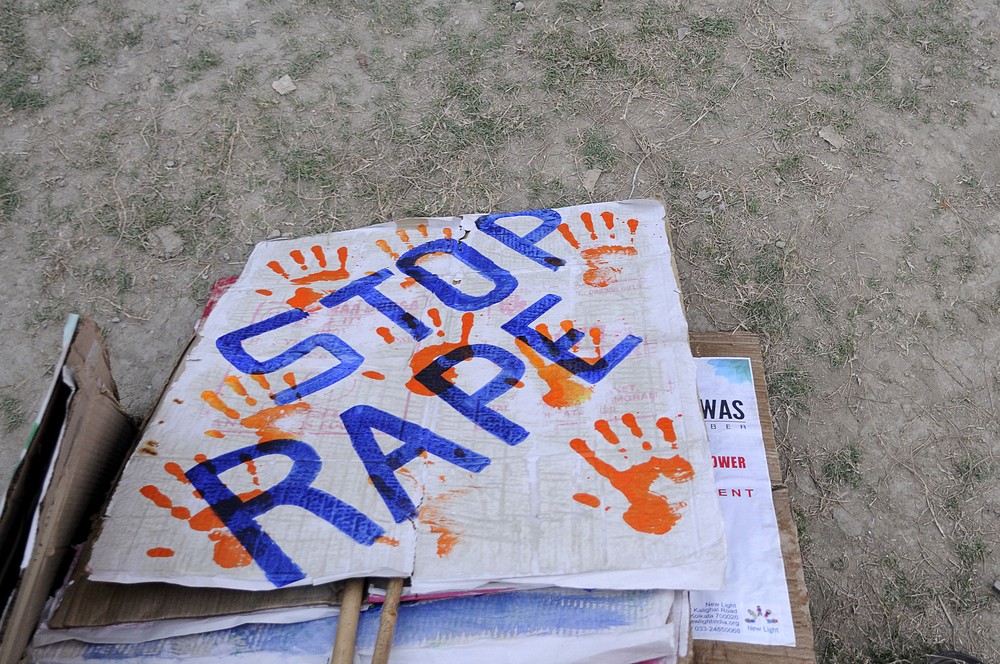Popular Reads
Top Results
Can't find what you're looking for?
View all search resultsPopular Reads
Top Results
Can't find what you're looking for?
View all search resultsMiss World 1998 shares rape story in documentary
Change text size
Gift Premium Articles
to Anyone
B
ack in 2013, Brave Miss World, a documentary about Miss World 1998 Linor Abargil’s experience as a rape survivor, was released to the public.
On Wednesday, the film was screened at the @america learning center in Pacific Place, South Jakarta, to mark the upcoming International Day for the Elimination of Violence against Women on Nov. 25.
“In the film I tell my own story, without shame, as I reach out to other women around the world, encouraging them to tell theirs,” Abargil said.
Abargil, who was Miss Israel 1998, modeled in Italy prior to the Miss World competition. Six weeks before the competition, at the age of 18, she was abducted, stabbed and raped in Milan by an Israeli travel agent. Ten years later, she launched a website and started to speak about rape, as well as beginning to film the documentary.
(Read also: Pakistani gang rape victim walks the fashion runway)
 Linor Abargil talks about the Brave Miss World documentary in a prerecorded video shown at @america in Pacific Place, South Jakarta, on Nov. 23.(JP/Masajeng Rahmiasri)
Linor Abargil talks about the Brave Miss World documentary in a prerecorded video shown at @america in Pacific Place, South Jakarta, on Nov. 23.(JP/Masajeng Rahmiasri)
“I think most of the press and people look at ‘why did she go there, why did she dress like this’. They don’t look at the victim and of the way of she was hurt,” the law graduate said in a video recorded for the event.
“I hope that anyone who went through rape will know that it’s not your fault. You have to tell somebody that loves you, that gives you support,” she added, adding that the love and support from her family had encouraged her to speak out.
The documentary’s producer Cecilia Peck also shared her thoughts through a video call. “The real mission of the film is to encourage survivors not to blame themselves and not to be ashamed, and to know that it’s not their fault,” she said.
Peck said she also wanted to convey the story of Abargil and her mother — who Abargil called just after the rape and who encouraged her to submit evidence to the police — through the documentary, underlining the importance of supporting rape survivors.
“Anyone who hears about rape — the first words you say are very important. And the words have to be ‘I believe you, I’m here to help you and it wasn’t your fault’,” Peck added.
(Read also: How to avoid sexual harassment when traveling solo)
Aside from the screening, the event also hosted a discussion initiated by four alumni from the International Visitor Leadership Program (IVLP), namely Linda Tangdialla, Riri Artakusuma, Maria Yuliana and Monique Rijkers.
Yayasan Rumah Tumbuh Harapan (RUTH) founder Devi Sumarno and The Jakarta Post journalist Alex Junaidi participated as speakers in a discussion themed “The media’s role in erasing sexual violence against women”.
Devi, who assists women who are victims of sexual assault or who experience premarital pregnancy, shared some of the issues she had encountered during her work. Among them were “Indonesian culture that tends to isolate victims”, a “lack of education” and “the feeling of shame that shuts the survivors, making them not want to ask for help from anyone”.
(Read also: 11 essential tips for women traveling solo)
 International Visitor Leadership Program (IVLP) alumnus Monique Rijkers (left to right), Yayasan Rumah Tumbuh Harapan (RUTH) founder Devi Sumarno and The Jakarta Post journalist Alex Junaidi speak during a discussion at @america on Nov. 23.(JP/Masajeng Rahmiasri)
International Visitor Leadership Program (IVLP) alumnus Monique Rijkers (left to right), Yayasan Rumah Tumbuh Harapan (RUTH) founder Devi Sumarno and The Jakarta Post journalist Alex Junaidi speak during a discussion at @america on Nov. 23.(JP/Masajeng Rahmiasri)
She argued that the role of parents and schools in educating young people about sexual awareness, educational information from the media, as well as the government’s role in enforcing the law against perpetrators of sexual violence needed to be enhanced in order to tackle the problems.
Meanwhile, Alex discussed issues regarding rape reports in the media. Among the problems were the representation of women as objects instead of discussing their achievements, victim blaming by the media, biased perspectives and a lack of journalists — both men and women — with gender equality knowledge. He also shared dos and don'ts of rape reporting and emphasized that the media should always take the side of the victim. (kes)











